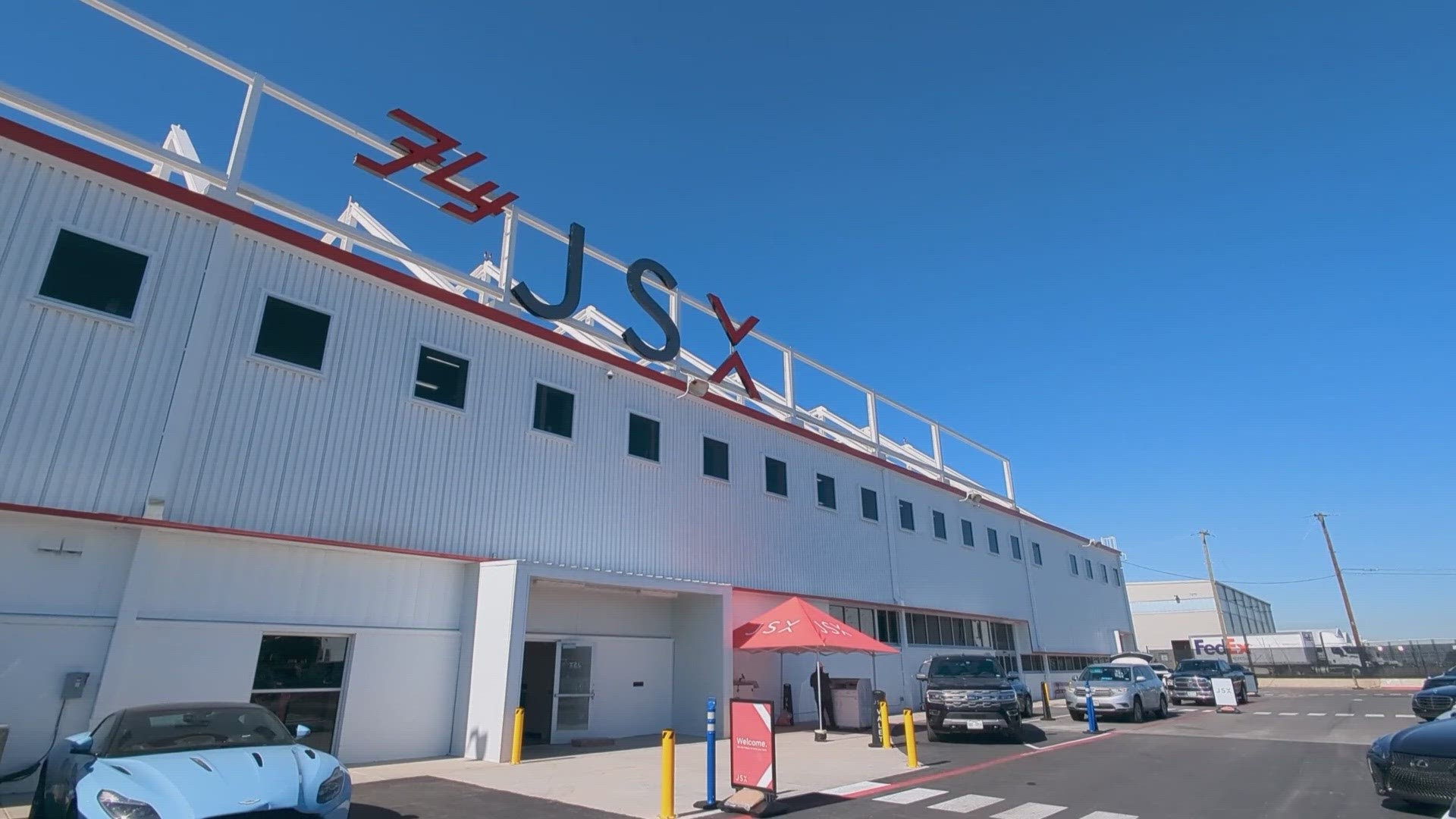DALLAS — Dallas-based JSX is a charter jet service offering a travelers paradise – where passengers show up 20 minutes before departure, hop right on the plane and lift off to their final destinations.
It’s a private jet-style luxury at commercial airline-like prices, with fares are as low as $159 one way.
“We have 30 seat jets, we have great leg room. We have Starlink Wi-Fi free on every flight,” said JSX Director of Marketing and Communications Benjamin Kaufman. “It's the ultimate product for convenience to get it rid of the hassle, the congestion, the frustrating delays that happen in the main airport terminals - we take all of that out of the equation.”
Since being founded in 2016, JSX has become quite popular among travelers, like Kimberly Stout who flew in Tuesday from Nashville with her mom and four kids.
“The flight was lovely. The crew was lovely, but not having to go to a major airport was a game changer,” Stout said.
However, the hop on jet service’s success is also attracting some fierce opposition ... namely from North Texas-based American Airlines and Southwest Airlines. The two carriers, as well as several pilot unions, are pushing the FAA to review charter standards and close up what they say is a regulatory loophole that allows JSX to operate.
Critics said current rules allow the company to operate like a major carrier without the same safety and security rules. As a public charter, JSX can fly out of the same terminals as private jets – where there’s no traditional TSA checkpoints, hire pilots that are over the 65-year-old cap for commercial airlines, and pilots who don’t meet the 1,500 hours of required flying experience.
In a statement, Southwest Airlines told WFAA:
“There needs to be 'one level of safety for anyone flying on a scheduled passenger carrier.'”
An American Airlines spokesperson released this statement to WFAA:
“We applaud the FAA for its intent to close the loophole currently allowing certain scheduled passenger carriers, like JSX, to evade the safety and security requirements of most airlines. America's security architecture was crafted after 9/11 to keep passengers safe, and we can't afford to see it undermined. Any airline business model built to evade traditional security measures is concerning, so it's not surprising that in recent weeks we've seen aviation and security experts speaking out on the dangers of these security loopholes. The FAA correctly suggests that as the operations of companies seeking to exist under separate safety and security regulations grow, it would be wise to reevaluate this misuse of the exception for public charter operators under current FAA regulations."
“There's a lot of false allegations that are being thrown around about safety and about pilot training. And none of that is statistically supported by any data,” Kaufman told WFAA.
Kaufman said not only do all of their customers go through weapons and explosives detection and a metal detector, but every single bag that goes on an airplane is also screened.
“All of our safety protocols are vetted by the TSA and an accepted safety plan,” Kaufman said. “And in the FAA's own review of part 380 operations, they, in their own words, could not find any evidence to support that there was any gap in safety.”
The FAA is now accepting public comment and told WFAA – after their review – they’ll make a decision.
In the meantime, JSX is adding more routes and accepting holiday bookings at Dallas Love Field and their other 25-plus destinations.
“At the end of it, we see this as political bullying to legislate competition out of the market instead of actually just trying. To compete,” Kaufman said.
More Texas headlines:

